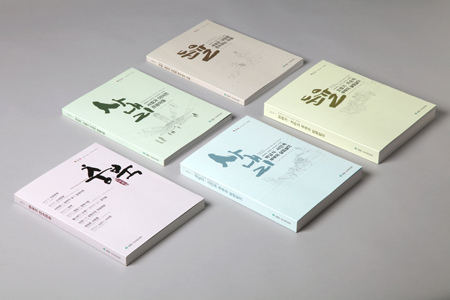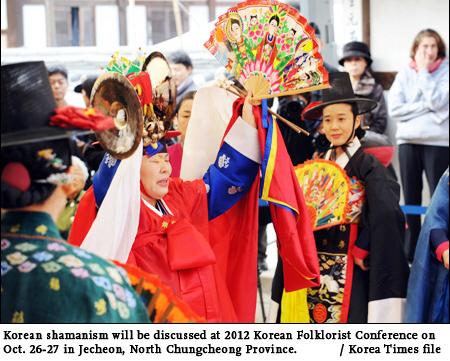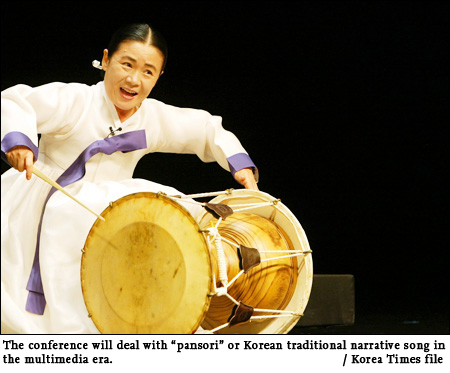Scholars to discuss globalizing folklore

Books focusing on folk culture of North Chungcheong Province (Photo : National Folk Museum of Korea)
Jecheon to host Korean Folklorist Conference Oct. 26-27
Globalization is a modern mantra in almost every field and folklore is no exception.
In the 21st century, the world is facing a polarized phenomenon between globalization and localization. To narrow that gap, Korean folklorists who keep track of traditions and past cultures are trying to confront globalization, albeit belatedly, as their main agenda in the “2012 Korean Folklorist Conference.”
Organized by the National Folk Museum of Korea, the conference will be held on Oct. 26 and 27 in Jecheon, North Chungcheong Province, to mark the “Year of North Chungcheong Province’s Folklore.”
It is nothing new that various international cultures are seen in Korea while Korean culture can be found in other parts of the world.
However, for a long time folklorists have failed to respond swiftly to the era of globalization as they have been bent on only collecting and documenting resources within their own boundaries. Although their collections and records have been highly appreciated, a lack of explanation and analysis has limited their studies.
On this occasion, Korean folklorists will discuss the challenges and prospects of their studies in terms of globalization.
Im Jae-hae, a professor at Andong University, said in a press release that the future of folklore in the era of globalization lies in the efforts of scholars to break the boundaries of their studies and inspire more creative spirits.
Among others, Lee Joung-jae, a professor at Kyung Hee University, will focus on the role of Korean shamans who are venturing abroad.
“Currently, there are many Korean shamans who are now serving in other countries. Through their experiences, we should look at their status as modern society is complicated and the future is becoming murkier, particularly in these financially-difficult times,” Lee wrote in his research.
“Encountering the neo-shamanism of Western culture is very important for the globalization of Korean shamanism. Korean shamanism is hardly known in Western countries where people mostly associate shamanism with Siberians and Native Americans. To remove the bias against superstitious behavior, Korean shamanism should focus on the healing of spirits.”
Korea University professor Lee Tae-hwa will deal with “pansori” (traditional Korean vocal and percussional music) in the multimedia era. “To boost the popularity of pansori, we should utilize multimedia to connect modern audiences with traditional genres,”said Lee.
Kim Hee-sun, a professor at Kookmin University, raised the issue of diversification to better communicate with people outside Korea, demanding both the globalization and localization of Korean folk music.
Gwangju National University of Education professor Choi Won-oh pointed out that the range of research of oral literature should be extended to wider fields instead of sticking to the region, nationality and its people.
Along with the main theme, the convention will also feature the folk life of North Chungcheong Province, particularly its food culture. Documents called “Banchan Deungsok,” which describes the food culture of people living in Cheongju around 1910 will be introduced. The records include recipes of local dishes and the use of ingredients that invariably reflect the region’s natural environment and socioeconomic factors.
Research by Koo Mee-rae will also highlight the economic and religious life of Saha-chon near Beopju Temple in the region where village residents live under Buddhist influences. <The Korea Times/Chung Ah-young>





















































